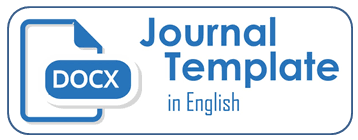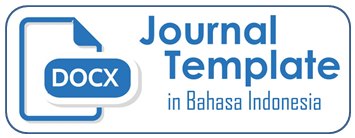The Effect of Audit Partner’s Perceptions of Locus of Control, Organizational Commitmnet and Audit Fee on Audit Quality
DOI:
https://doi.org/10.26486/jramb.v8i2.2393Keywords:
audit quality, locus of control, organizational commitment, audit feeAbstract
This study examines the effect of locus of control, organizational commitment and audit fees on audit quality from the audit partner's point of view. Attribution theory and agency theory are used to develop hypotheses and analyze the effect of each variable on audit quality. Data collection in this study used purposive sampling with the criteria of KAP partner participants registered with the Indonesian Institute of Certified Public Accountants (IAPI). 246 participants from 477 partners registered in the IAPI directory obtained, 195 of them met the requirements of the study. Smart partial least square (Smart-PLS) was used to analyze the data. Additional testing using SPSS was carried out to see the consistency of the results and increase confidence in the results of the analysis. The results of this study indicate that audit quality is influenced by locus of control, while organizational commitment and audit fees are not. Discussion and elaboration using the IAPI code of ethics and auditing standards enrich the explanation of the research results.References
Basudewa, D. G., & Merkusiwati, N. K. (2015). Pengaruh locus of control, komitmen organisasi, kinerja auditor dan turnover intention pada perilaku penyimpangan dalam audit. Bulletin of the Academy of Sciences of the USSR Division of Chemical Science, 13(3), 944–972.
DeAngelo, L. E. (1981). Auditor Size and Audit Quality. Journal of Accounting and Economics, 3(3), 183-199.
El-Gammal, W. (2012). Determinants of Audit s: Evidence from Lebanon. International Business Research, 5(11), 136-145.
Gibson, J. L., Ivancevich, J. M., Donnelly, J. H., & Konopaske, R. (2012). Organizations Behavior, Structure, Processes. Boston: McGraw-Hil, Irwin.
Heider, F. (1958). The psychology of interpersonal relations. Washington DC: John Wiley & Sons Inc.
Indrayati, Chandrarin, G., & Supanto, F. (2020). Effect of Audit Quality, Corporate Governance and Transformational Leadership on Auditor Performance through Organizational Commitment and Organizational Culture on Public Accountant Offices in Indonesia. European Journal of Molecular & Clinical Medicine, 7(1), 4303-4313.
Jensen, M. C., & Meckling, W. H. (1976). Theory of the firm: Managerial behavior, agency costs and ownership structure. Journal of Financial Economics, 305-360.
Kristanti, M. S., Anugerah, R., & Hasan, M. A. (2017). Pengaruh Time Budgeting Pressure, Locus of Control, Komitment Organiisasi dan Stres Kerja terhadap Kualitas Audit dengan Perilaku Disfungsional Audit sebagai Variabel Intervening. Jurnal Online Mahasiswa Fakultas Ekonomi Universitas Riau, 4(1), 867-880.
Otley, D. T., & Pierce, B. J. (1996). The Operation of Control Systems in Large Audit Firms. Auditing: A Journal of Practice & Theory, 15(2), 65-84.
Pradana, S. E., & Purwanto, A. (2016). Faktor-Faktor Penentu Tarif Biaya Audit Eksternal pada Perusahaan yang Terdaftar di Bursa Efek. Diponegoro Journal of Accounting, 5(2), 1-11.
Pramono, O., & Mustikawati, R. I. (2016). Pengaruh Locus of Control, Due Professional Care dan Integritas Terhadap Kualitas Audit (Studi Empiris Pada Kantor Akuntan Publik di Daerah Istimewa Yogyakarta). Profita, 5(1), 1-15.
Robbins, S., & Judge, T. (2013). Organisational Behavior (Vol. 15th edition). Boston: Pearson.
Rossita, N. M., & Sukartha, I. M. (2017). Pengaruh Kompetensi, Komitmen Organisasi, Skeptisme Profesional Dan Motivasi Pada Kualitas Audit. E-Jurnal Akuntansi, 20(3), 2539-2565.
Rotter, J. B. (1966). Generalized expectancies for internal versus external control of reinforcement. Psychological Monographs: General and Applied, 21(3), 365–374.
Smeenk, S., Eisinga, R., Teelken, J. C., & Doorewaard, J. (2006). The effects of HRM practices and antecedents on organizational commitment among university employees. The International Journal of Human Resource Management, 17(12), 2035-2054.
Downloads
Published
Issue
Section
License
Authors who publish with (JRAMB) Jurnal Riset Akuntansi Mercu Buana agree to the following terms:
Authors retain copyright and grant the JRAMB right of first publication with the work simultaneously licensed under a Creative Commons Attribution License (CC BY-SA 4.0) that allows others to share (copy and redistribute the material in any medium or format) and adapt (remix, transform, and build upon the material) the work for any purpose, even commercially with an acknowledgement of the work's authorship and initial publication in JRAMB. Authors are able to enter into separate, additional contractual arrangements for the non-exclusive distribution of the journal's published version of the work (e.g., post it to an institutional repository or publish it in a book), with an acknowledgement of its initial publication in JRAMB.
Authors are permitted and encouraged to post their work online (e.g., in institutional repositories or on their website) prior to and during the submission process, as it can lead to productive exchanges, as well as earlier and greater citation of published work (See The Effect of Open Access).












